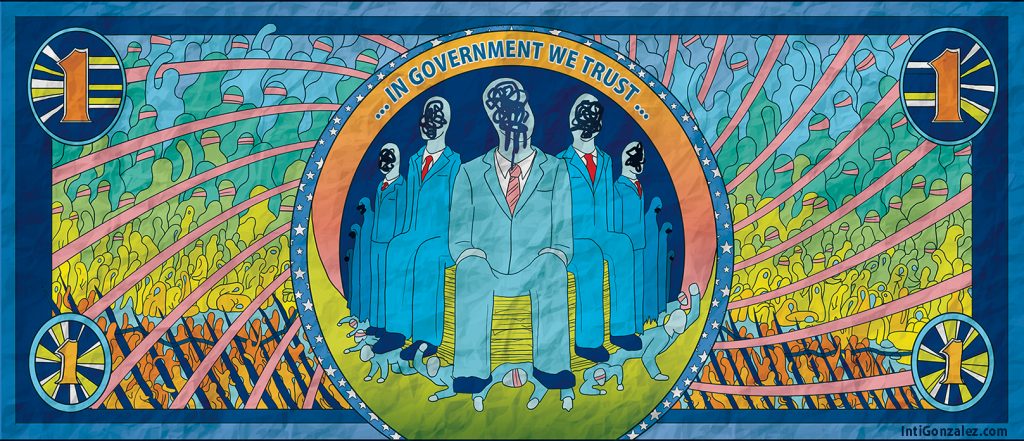
Although Congress has a slim majority of Democrats and we now have a Democratic President, most of what Trump installed in his administration remains in place. Now, disabled poor people are looking at a systematic effort by the Social Security Administration and HUD to deprive disabled poor people of housing and income. We are now seeing the fallout of President Trump’s 2021 Budget, which targets the most vulnerable people with deep cuts in benefits, and a supposed effort to return disabled people to the workforce. The beneficiaries of this budget are the people at the very top, who are getting a nifty tax break. Being bumped from benefits can mean one of two things for us, either complete institutionalization, or dying on the street.
Trump said he wants to send all the mentally ill people back to the state hospitals. This would fully ruin our lives. Most disabled people have the potential to live in society and become contributing members.
The move to deprive disabled people of basic needs isn’t new. We need look no farther than Ronald Reagan with his Budget Reconciliation Act of 1981. The Reagan change included replacement of federal funding to support mental health with federal block grants allocated to states, and the effort was to increase capacity of existing programs, while cutting federal aid. Politicians historically don’t care if disabled people suffer because we do not determine who is elected to office.
In my time, I have seen that neither Democrat nor Republican administrations have done anything significant to address the plight of homelessness. Politicians, regardless of party affiliation, are after the big donors, which disabled and poor people aren’t. Money buys votes. And furthermore, it seems as though disabled people are not believed to have any significant political clout.
I’ve experienced efforts of both Social Security and HUD to find reasons to bump me off. Bumping off as many as possible saves tax payer dollars so that more can be spent on the military, and on tax cuts and subsidies for big corporations. I talked to others who live on government benefits who are experiencing similar things.
In the minds of most Americans, low-income people are scum, and should be kept away from any contact with good, law-abiding, affluent, working people. We are seen as druggies, alcoholics, criminals, and crazies. Most of us are none of that. The government should do more to make the lives of disabled people livable, and it should not be slashing benefits at a time of extreme vulnerability, in which the national effort has been directed at fighting coronavirus.
If our government has the will to bump off disabled and poor people, then it must create a climate in which disabled people can get a job, the duties of which are doable, that pays a living wage, and, one hopes, is not overly humiliating. Going back to a state hospital is completely inappropriate. Acting CEO Angela Kimball for NAMI (National Alliance on Mental Illness) in a public statement said she believes that community-based treatment works best for recovery, and strongly disagrees with reopening the state hospitals.
The message must be delivered loudly to the Biden/Harris Administration that disabled people are in jeopardy due to leftover Trump policies, and that this must be addressed right away. Meanwhile, we are not a hundred percent helpless.
In a talk group these concerns can be raised, and this will have the effect of raising the consciousness about this issue for more consumers and service providers. To the extent we are able, we can advocate for ourselves, and make our concerns heard. Any time and effort we can make toward self-advocating or expressing our needs does not go to waste.
In the future, society will take good care of those in need, but getting to that point entails an uphill battle. More people with disabilities should make their voices heard, and different means will work for different individuals. The point is, we do what we can, and we don’t sweat the things we can’t. But we do not need to remain passive.
Jack Bragen currently lives in the San Francisco Bay Area.
